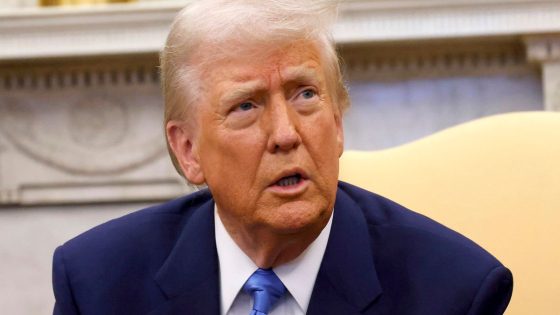On February 10, 2025, Germany‘s Economy Minister Robert Habeck expressed concerns regarding the U.S. government’s impending tariffs on steel and aluminum imports. Following a discussion with EU trade chief Maroš Šefčovič, Habeck highlighted that the export-driven German economy significantly benefits from open markets.
- Robert Habeck expresses concern over tariffs.
- U.S. steel imports primarily from Canada, Mexico.
- Reciprocal tariffs target EU car and agriculture sectors.
- J.D. Vance and Ursula von der Leyen meeting.
- Open markets crucial for Germany's economy.
Habeck’s remarks come as the U.S. prepares to impose reciprocal tariffs that could impact various European industries, including automotive and agriculture.
The announcement of new tariffs by the U.S. has raised alarms among European leaders, particularly in Germany, which relies heavily on exports. Habeck emphasized that open markets are crucial for the German economy, suggesting that these proposed measures could have far-reaching negative effects on trade relations between Europe and the united states.
In 2023, Canada, Mexico, and Brazil were identified as primary sources for U.S. steel imports, while Canada remains a significant supplier of aluminum alongside the United Arab Emirates and China. The potential imposition of a 25 percent tariff primarily targets these countries but also threatens specific sectors within Europe.
- The EU’s car industry may face substantial challenges due to increased costs from tariffs.
- Agricultural products could see reduced competitiveness in the global market.
- The pharmaceutical sector is also at risk of being affected by retaliatory measures.
As tensions rise over trade policies, J.D. Vance, former Vice President under Trump, is set to meet with European Commission President Ursula von der Leyen in Paris on Tuesday during an AI summit. This meeting marks an important moment for diplomatic discussions surrounding trade issues since Trump’s administration began.
The looming tariffs represent a significant development in transatlantic trade relations as both sides navigate complex economic interdependencies amid rising protectionist sentiments.

































